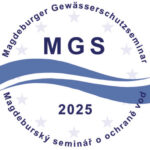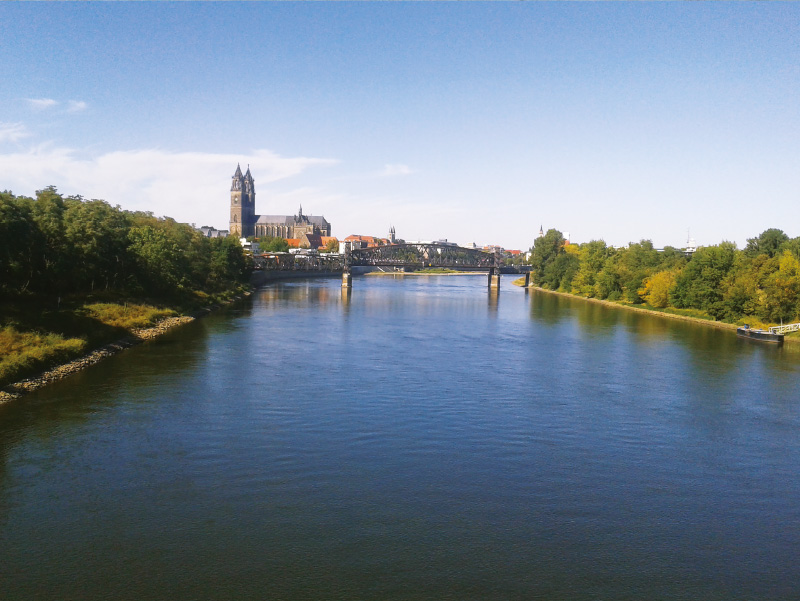
On 8–9 October 2025, the 21st Magdeburg Seminar on Water Protection will take place in Magdeburg, Germany. This regular international event, held alternately in the Czech Republic and Germany, has, over more than three decades, established itself as an important professional and scientific platform for the exchange of knowledge in the field of water management and water protection in the Elbe Basin.
THEME FOR 2025
This year’s seminar carries the central theme “Water management in the Elbe Basin – yesterday, today, and tomorrow,” reflecting the long-term development, current challenges, and future perspectives in managing the region’s water resources.
The seminar’s content is structured into three main thematic areas:
- Security of water resources and ecosystem functions in the context of climate change,
- The Elbe as a waterway – opportunities and limitations,
- Strategies for water monitoring and management.
PROGRAMME AND INVOLVEMENT OF INSTITUTIONS
The seminar programme includes 27 professional lectures, a poster session, and three specialist excursions focusing on practical aspects of water protection and utilisation. T. G. Masaryk Water Research Institute (TGM WRI) is actively involved in the programme through two lectures and four poster presentations.
As with all German seminars, the main organiser of this year’s event is the Helmholtz Centre for Environmental Research (UFZ). When the seminar is held in Czechia, the role of main organiser alternates between the Labe, Vltava, and Ohře River Basin Authorities.
INTERNATIONAL COOPERATION AND PROFESSIONAL PROGRAMME
The seminar is prepared with the involvement of a programme committee composed of representatives from institutions in both Czechia and Germany. The International Commission for the Protection of the Elbe River (ICPER) also plays an important role, providing organisational, professional, and linguistic support for the entire event through its secretariat.
The programme offers a wide range of lectures. On the German side, notable contributions include Norbert Kamjunke (UFZ) with his presentation “Transformation of nutrients and dissolved organic matter in the river from source to sea,” and Jörg Tittel from the same institution with “Elbe river modification for navigation reduces floodplain water resilience to climate change – studies on the middle Elbe near Magdeburg.”
TIMELINE OF PAST SEMINARS

The Czech side will also be represented by a number of contributions. Notable examples include Pavel Richter (TGM WRI) with his presentation “Current state of the landscape at the site of a former pond system in the Doubrava Basin and possibilities for its transformation in the context of ongoing climate change,” and Karel Březina (Vltava River Basin Authority) with “Reassessment of the security of surface water supply from reservoirs under conditions of climate change.”
As the seminar topics suggest, attention will also be given to the issue of Elbe navigation. Examples include Iris Brunar (BUND: Friends of the Earth Germany) with her presentation “Perspectives for a free-flowing Elbe: navigation, trends and potential,” and Vojtěch Dabrowský (Ministry of Transport of the Czech Republic) with “The Elbe waterway as part of the European inland waterway network.”
HISTORY AND SIGNIFICANCE OF THE SEMINAR
The first Magdeburg Seminar on Water Protection was held in 1988 in Magdeburg. Since 1992, the seminar has alternated regularly between Czechia and Germany. It was last held in Magdeburg in 2008, while the most recent seminar (2023) was organised in Karlovy Vary by the Ohře River Basin Authority in cooperation with the ICPER.
For more than thirty years, the seminar has been a key forum for experts from science, public administration, and water management practice. It provides a space for sharing up-to-date scientific knowledge, discussing strategic approaches, and strengthening cross-border cooperation within the Elbe Basin. Its importance was underlined by the words of the current ICPER President, Ing. Tomáš Fojtík:
“Water management in the Elbe Basin is a task that transcends state borders and generations. I believe that the discussions at this year’s seminar will contribute to finding solutions that will ensure the sustainable use of our water resources for future generations.”
An informative article that is not subject to peer review.

